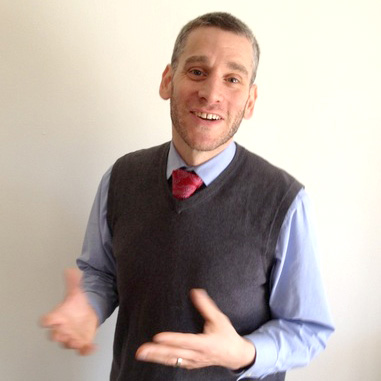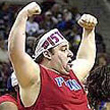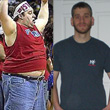I was on my way to a work event and needed something to give me a little boost of energy. I quickly ducked into a CVS with the intention of grabbing a diet soda -- a little caffeine boost would do the trick. As I entered through the automatic doors, all the beverages were immediately to the right: Milk, then juice, then, here we go -- soda. I was in a hurry and quickly scanned my options, settling on Diet Wild Cherry Pepsi -- a real treat because most places don't carry it.
I turned around and headed for the registers, passing by the chips, cookies, and -- wait a minute -- out of the corner of my eye was the candy aisle. It's as if, they knew my weaknesses and placed it right in my path. I wasn't hungry, but somehow found myself stopping, turning away from the register and now walking into a sugary sweet display of all the most dangerous choices.
I fixated on the display of gummy candies, which I am convinced are singlehandedly responsible for putting my dentist's kids through college. I zeroed in on a bag of those fruit slices with the sugary topping glistening in the store lights. At $1.49 a bag, I contemplated whether it would be justifiable to buy the whole bag, eat only a few of them and then throw the rest away. I reached out and grabbed onto one of the bags, the plastic crinkling as I started to pull it off the shelf.
Then I said to myself,
I don't know if I need this right now. There will be other food at this event, so why do I need to eat this right now. The diet soda will give me the pick-me-up I am craving right now. Walk away now and go buy the soda.
I released the package from my grip, took a step back, a deep breath and turned back toward the register.
"Did you find everything you need okay?" said the cashier.
I am sure I walked out of there with everything I needed, but my mouth was still salivating at his question, because I was thinking about biting into one of those fruit slices. I was imagining how the sugar would have tingled on my tongue as soon as I put it in my mouth.
I muttered some kind of neutral response but I don't remember what it was. I was feeling too ashamed about my episode with the candy in aisle four. Sure I had stopped myself this time, but other times before that day, I had not chosen to stop. On my way out, I began to wonder if I ever came in for a diet soda at all, or if my subconscious plan was to sniff out the candy aisle all along.
Earlier this month, The New York Times ran a piece about the findings of a study of a group of contestants from the reality TV show The Biggest Loser. Admittedly, I have only watched the show a couple of times, but the premise is pretty simple: Extremely overweight contestants compete to see who can lose the most weight. The winner, after several months of intense dieting and exercise along with a host of other challenges, is crowned "Biggest Loser."
This study tracked contestants from Season 8 for six years after their dramatic weight loss to find that most had regained some if not all of the weight they lost on the show. Furthermore, the research found that major changes had occurred in each of their resting metabolisms after their extreme weight loss. In short, their bodies seemed to be working against them when it came to maintaining their dramatic feats of weight loss even more so than before they lost the weight in the first place.
I saw this article pop up in my social media feeds a lot; it brought on a strong reaction from many people. Over 2,700 people have directly commented on the article and I am sure thousands more have read it. I am not a scientist or nutrition expert, so I can't speak to the science behind what this research shows, but having lost over 100 pounds and worked to maintain that loss for over four years, I can definitely speak to it from my own personal experience.
If you read between the lines, this article tells the story of what draws us to the stories of these Biggest Losers. Those of us who want to see those pounds go away but feel helpless to stop ourselves from overeating find hope in the stories of the contestants on the show. If they can do it, so can we. We then find comfort in our own failures when we hear that even they couldn't keep the weight off. And finally, when we learn from the research that it's not them (or us) it's our metabolism that is to blame, that removes the guilt and shame from ever having this problem in the first place.
Sadly, none of this does anything to help. Whether we dive head first and guilt-free into a piece of chocolate cake or sit quietly in the corner, stuffing it into our faces fighting back shameful tears, we are still eating chocolate cake. If we eat enough of it, we will likely gain weight.
To be clear, I don't believe that eating cake or gummy candies or anything "bad for you" is a mortal sin, regardless of what may or may not happen to your body. I'm just pointing out that changes to our behaviors and habits must be a piece of changing our bodies. At the same time, I am also not interested in reducing what for me was a complex, physical and emotional journey to an oversimplified scientific finding, fad diet or the notion that walking away from the candy aisle made all the difference.
After struggling with food for almost my entire life, I have found that food issues and challenges with weight are immensely more layered and nuanced than a lot of popular media would suggest. I would love to see more articles that remove the stigmas around being fat, so we can have more honest conversation about how to take responsibility for eating our way to the healthiest versions of ourselves. If we can't talk openly about this then how will we truly know what we are losing for anyway?



.jpg)
.jpg)



.jpg)

.jpg)



